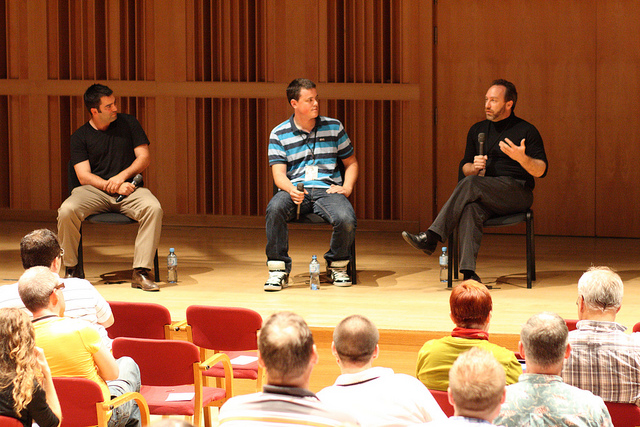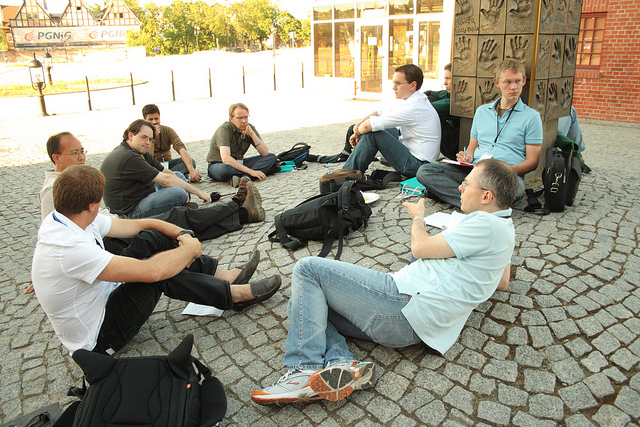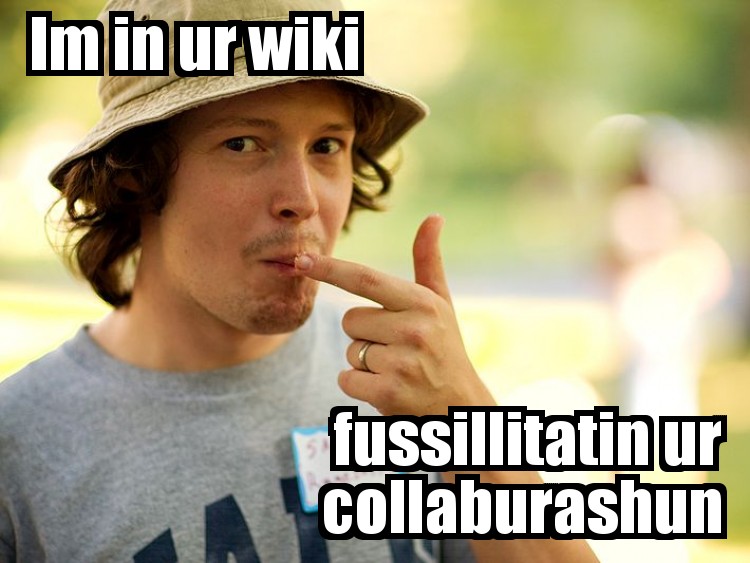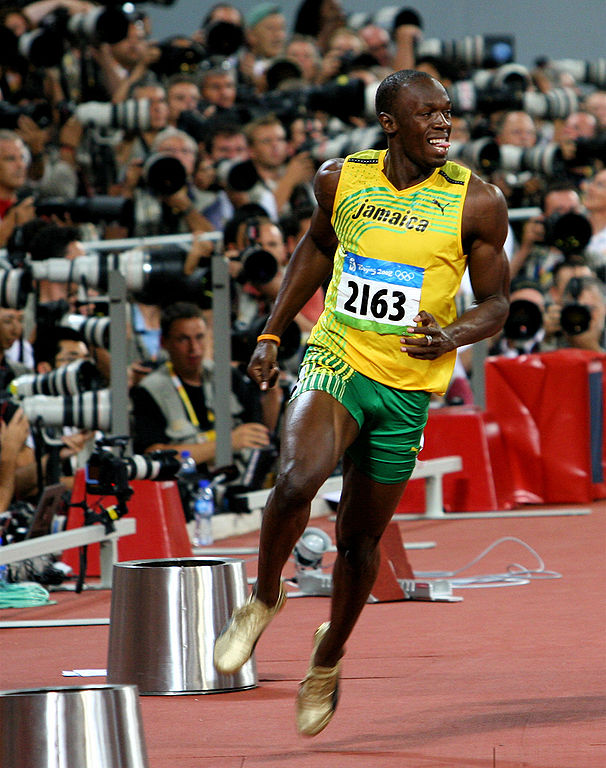Last year, I blogged about how freely licensed photos are used and misused across the web. Figuring out how my photos are being used (as long as I’m being credited by name) is much easier now with the Google search options (rolled out in May 2009 and with more options added just this month), which let you limit search results to newly indexed pages.
I have over 3500 CC BY-SA photos on Flickr (including lots of family photos, abstract shots, and other stuff unlikely to be reused) and probably around 1000 original photos on Wikimedia Commons, generally available under both GFDL and CC BY-SA (and a good portion of which are not duplicated on Flickr). At this point there is a fairly steady stream of reuse, most of which I’m not directly aware of (except when I go looking, like now). I estimate that my ~4000 photos are put to new uses at rate about 15-20 times per week. Let’s see what types of uses my photos have been put to recently.
Searches (limited to results first indexed within the last week) for “ragesoss” and “Sage Ross” ought to turn up nearly all of the new cases where I’m being credited for photos.
As before, the most active user of my photos is World News Network (wn.com), a set of algorithmically-generated sites that are titled like local or special interest newspapers but basically just link to offsite news stories, add free photos, and run ads against the photos and headlines. For example, this story about pesticides in peaches links to the actual story from The Oklahoman but adds my picture of peaches. The credit reads “(photo: GFDL / Sage Ross)”. Although I think a link back to the source or my Commons userpage (which is where the attribution link at Commons points) is appropriate, it probably doesn’t violate the letter of the license (which is already stretched thin when applied to photos and other things very dissimilar from software manuals). In another example, they use a CC license instead of the GFDL for my photo of coffee beans. In this case, the credit reads “(photo: Creative Commons / Ragesoss)”, with no link to the specific license or the source. This violates both the spirit and the letter of the CC BY-SA license. World News Network has used my photos hundreds, maybe thousands of times, and I’m sure many other photos from Commons by other Wikimedians are being systematically (mis)used similarly.
Another common type of usage is from the many sites that are trying to monetize user-generated content and share the ad revenue between writer and website owner. In these cases, it’s the individual writers who are responsible for obtaining photos (and rights thereto), so compliance with free licenses varies widely. I found my photos on articles from suite101.com and hubpages.com. The suite101 article, “Free Instructions on How to Make an Apple Pie“, uses a series of photos I took while my sister was making pie. All the photos but one are credited to me and link back to the source on Commons, although no license info is indicated at suite101; this violates the letter, but not the spirit, of the CC licenses. Oddly, the lead apple pie image is misattributed and links to an entirely different pie photo from a quasi-free stock photography site; the writer probably used that image first but then replaced it when she found my photos. At HubPages, the article “Health Insurance Rescission and How To Fight It” uses my photo but merely credits it as “Photo by ragesoss” with no link or license information. AssociatedContent is another site like that where my photos show up frequently; they seem to be better than most at following the provisions of free licenses.
Blogs use my images somewhat less frequently. Recent uses include this entry in the Utne Reader “Science and Technology” blog (which does a great job with the credit line, linking to both source image and the specific CC license) and this one from the Choices Campus Blog (which has the mediocre credit line “Photo Credit: ragesoss at Flickr.com” with no link).
A final significant category of uses is in articles from professional news and content sites. Overall, these sites are somewhat more likely to use freely licensed images properly, but sloppy or improper uses are still common in my experience. The only recent credit I found is from the CNBC story “GE, Comcast Continue Talks Over NBC Stake“. The unlinked credit line simply reads “Photo: Ragesoss”, but the photo is one of my few early photos on Commons that I released as public domain rather than a copyleft license. So CNBC doesn’t have any legal obligation to give a more precise photo credit (or even to credit me at all), although if only for the sake of journalistic integrity they probably ought to do better.
Conclusion: People use freely licensed photos liberally from Flick and Wikimedia Commons, but there isn’t much indication that most reusers understand what the licenses mean or what they require from reusers. The free culture movement has a long way to go; cultural change is a lot slower than license adoption.
On a tangent, it’d be nice if Wikimedia Commons was equipped with something like refbacks combined with image recognition to automatically discover and collect web pages that are reusing Commons media. I think I’ll make a proposal on the Wikimedia Strategy Wiki when I get a chance.











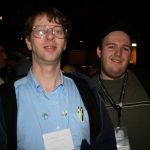
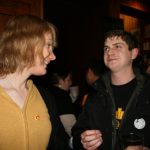


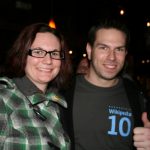
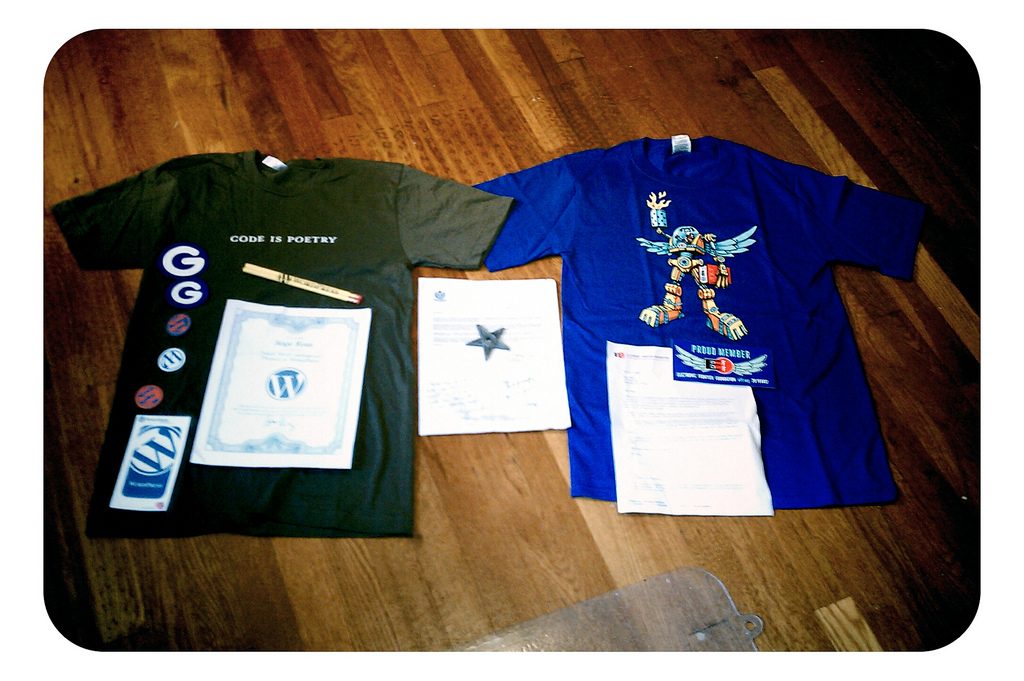 I got a trio of nice packages in the mail today, from
I got a trio of nice packages in the mail today, from 
